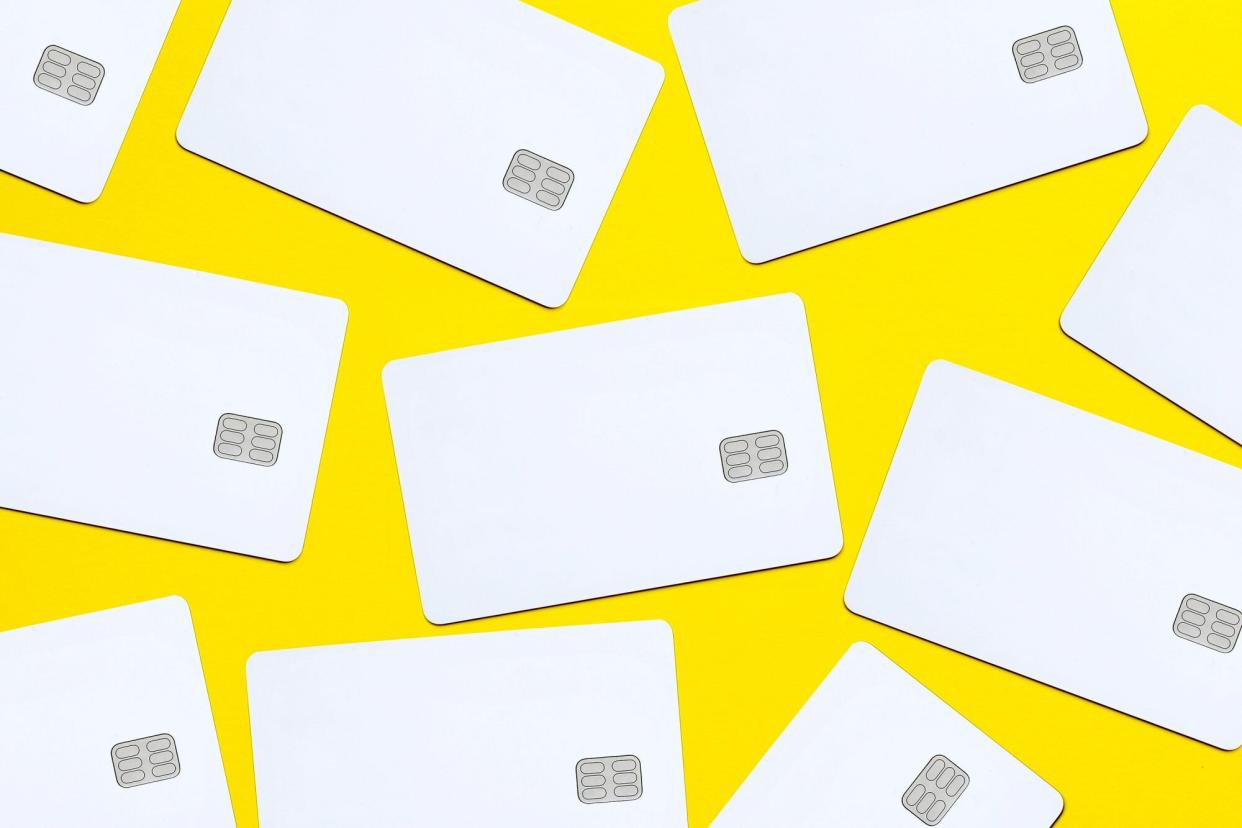Why You Should Take an Inventory of Your Credit Cards Now

Nodar Chernishev/Getty Images
TABLE OF CONTENTS
On This Page
Take inventory
Assess financial needs
How many is too many?
Closing an account
Unused accounts
Credit cards can be very advantageous. They allow you to build credit, and you can earn points, miles, and cash back just for using credit cards for everyday spending, booking travel, or linking them to your streaming services and subscriptions. With the average American owning nearly four credit cards each, according to Experian, many people are already reaping these rewards. However, mismanaging or losing track of your credit card portfolio can come with consequences that outweigh the benefits.
With multiple credit cards, you may pay multiple annual fees, have overlapping benefits, or have airline cards you're no longer using. If you aren't careful, you also run the risk of negatively affecting your credit score and going into unmanageable debt. We asked credit card experts to further explain why it's important to take an inventory of your accounts and how to pick and choose which cards are worth keeping.
Take a look at your credit card portfolio
You may have credit cards that you no longer use, or no longer suit you or your spending needs. "I think it's a good idea for everyone to reevaluate their credit cards at least once a year, [because] your lifestyle changes—and the market does too," says Ted Rossman, a senior industry analyst with Bankrate.
To get an inventory of your credit card accounts, request a free credit report. By federal law, you're entitled to one free report every 12 months from each of the three consumer reporting companies—Equifax, Experian, and TransUnion. The easiest way is to request a copy from AnnualCreditReport.com, but you can also call (877) 322-8228. This report will outline all your credit card accounts and provide detailed information on how you have used credit in the past, how much debt you have, and whether or not you've paid your bills on time.
Are your credit cards meeting your financial needs?
The golden rule of responsible credit card use is paying your credit cards in full and on time each month. Although reward credit cards offer great perks, if you are accruing interest and late fees, these costs will offset any rewards you are getting.
This is why that first step of analyzing your credit report is so important. "Consumers should know how they are using their credit cards, if they are paying them in full, late, or have any missed payments, or if they are receiving any perks such as credit card points or discounts," says Rod Griffin, senior director of consumer education and advocacy for Experian. He adds that it's just as important to "set a budget and pinpoint how you can make credit cards work for your budget."
RELATED: Finally: Here's How to Create a Budget You Can Really, Truly Stick To
"A budget allows consumers to live and spend within their means and helps consumers avoid using credit without a plan," Griffin says. "Unplanned credit use is the first mistake leading to unmanageable debt." For reference, Experian found that consumers had an average of $5,221 in credit card debt in 2021.
How many credit cards is too many?
Griffin affirms that there is no "ideal" number of credit cards to have. "From a credit scoring perspective, just one or two is sufficient; however, everyone has a different credit history and financial situation," he says.
If credit cards are managed responsibly, having multiple credit cards can be beneficial. Multiple credit cards may make it easier for you to lower your credit utilization ratio (the amount of available credit that you use), which can, in turn, help your credit score. Different cards may also mean different benefits, allowing you to optimize your purchases in various areas.
"However, for consumers that have a harder time managing their spending, multiple credit cards may be a challenge," cautions Griffin. "They may be more tempted to overspend, and keeping track of expenses and due dates across multiple cards can lead to missed or late payments."
What happens when you close a credit card account?
Griffin says that there are some instances where closing a credit card makes more sense than keeping it open. For example, he says, if a credit card with a high annual fee no longer provides benefits to you, closing it can help you save extra money every year.
However, closing a credit card can come with negative consequences, too. "Closing an account results in losing the available credit limit for that card, and as a result, your total utilization rate will increase, which will temporarily cause credit scores to decrease," Griffin explains.
If you do plan to close a credit card, Griffin advises doing it when you have no plans to apply for new credit in the next three to six months. "You will likely see an initial drop in your credit score due to the closure, but it will rebound typically within a few billing cycles when it becomes clear that the consumer didn't take on a lot of new debt," he says.
What happens when you have open accounts you don't use?
In order for your credit cards to be reflected in your credit score, you need to show regular activity in your account, says Griffin.
"If you do not use a card for several months, you might see an unexpected negative impact on your credit scores," he says. To be certain a credit card account is helping, not harming, your credit score, you should make a small purchase every month and pay it in full right away. "Doing so will ensure activity is reflected in the credit report and that the account will continue to lift your scores," he adds.

